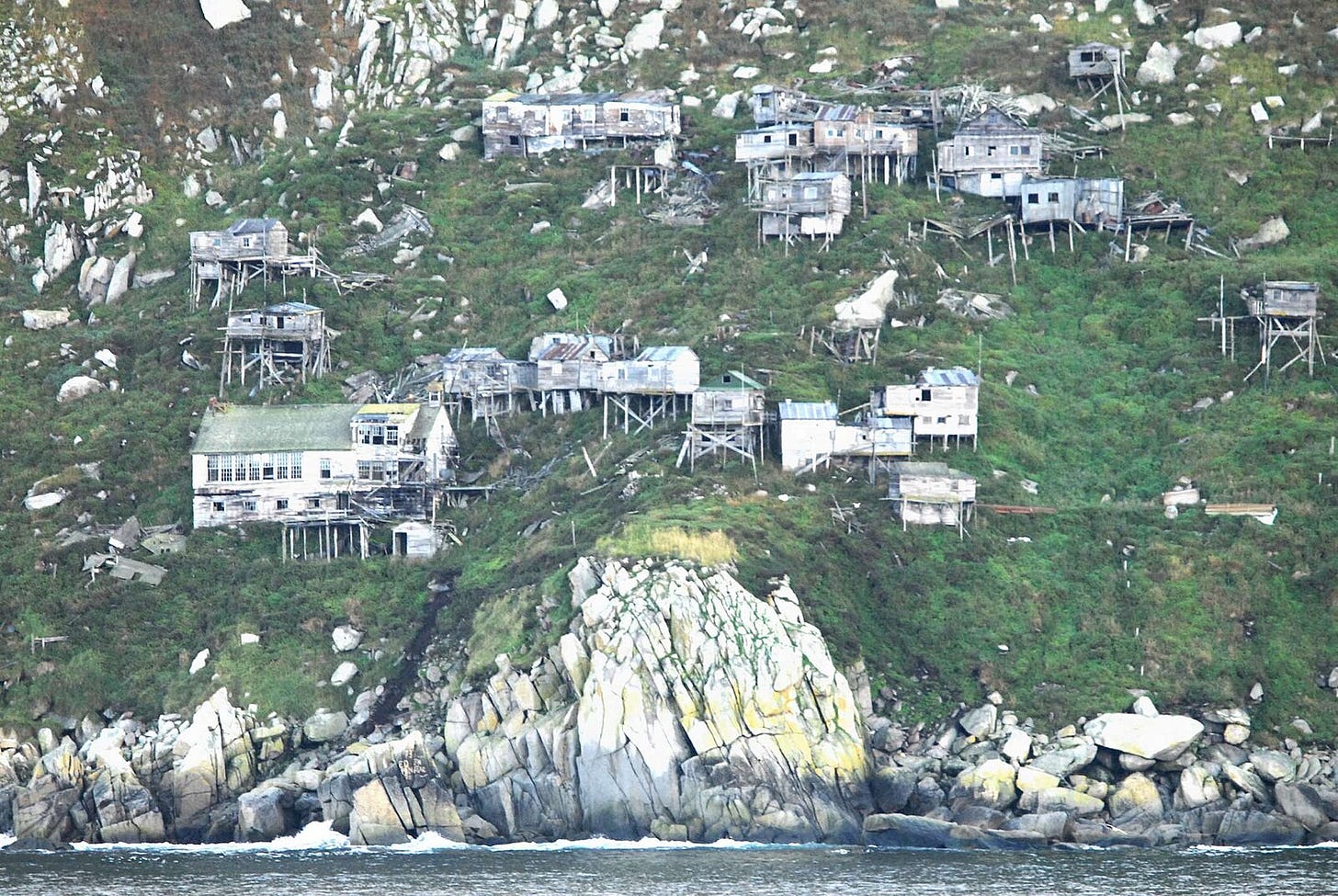Hyperboreal by Joan Naviyuk Kane
Ghostly, historically-grounded lyrical poetry
The next book in my #Reading50States challenge brings us to King Island, Alaska. Joan Naviyuk Kane’s Hyperboreal is a multilingual (Iñupiaq and English) book of poetry that reckons with what it means to have a connection to a place (whether that’s somewhere you were raised or an ancestral home) where you or your loved ones no longer live. The poems are full of haunting lines like:
Strident and inaccurate
Despite all proximity,
The mountains no longer
Made me feel better.
from “In a House Apart”
Kane is an Iñupiaq writer who was raised in Anchorage with family from King Island (Ugiuvak in Iñupiaq) and Mary’s Igloo. Many of the poems in the collection touch upon the history of King Island’s Iñupiaq community, the majority of whom were forcibly relocated from the island by the Bureau of Indian Affairs or felt socioeconomic pressures to leave throughout the 20th century. This includes Kane’s grandmother, who raised nine children there but was sent to the mainland to be treated for tuberculosis. Many King Islanders and their descendants, like Kane, now live in mainland Alaska or the lower 48.
Kane’s poems subtly and deftly reckon with this collective and personal loss. The speaker of her poems explores the strangeness and familiarity of a place she has heard so many stories about but never experienced for herself as a child, “a love absolute of places unknown to me.” And, the speaker seems to suggest, these places may always retain some degree of unknowability to her:
The sky of my mind against which self-
betrayal in its sudden burn
fails to describe the world.
We, who denied the landscape
and saw the light of it.
Leaning against the stone wall ragged
I began to accept my past and, as I accepted it,
I felt, and I didn’t understand:
I am bound to everyone.
from “Nunaqtigiit”
The yearning and sense of mystery that pervade these poems are powerful. I appreciated the lyrical, earnest, and even “katabatic” (to use a word from her collection) way that Kane brings her personal experience to bear on the difficulty of joining an older generation’s memories with a younger generation’s yearning to see what their elders saw.
This book left me with much to think about. I’ll end this with one of my favorite lines:
…we walk together uphill
Only to speak of something beautiful
About invisible technique, proportion
In a circle of fish:
Another blue abstraction.
from “Looking Through”
Until next time,
Shannon






